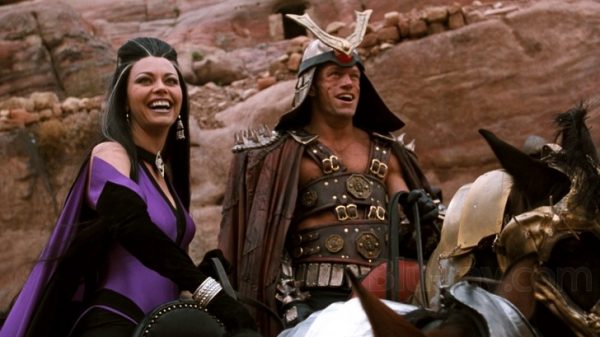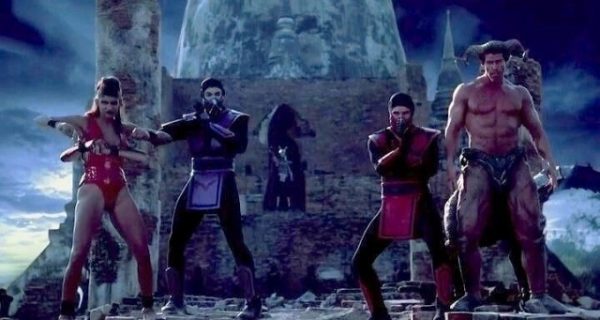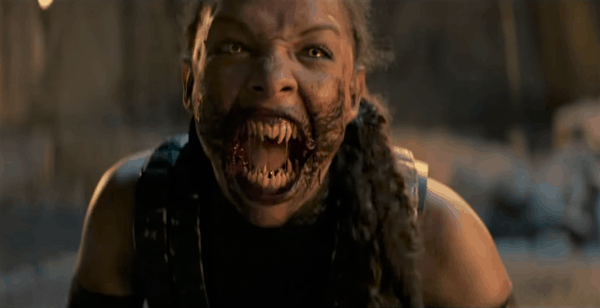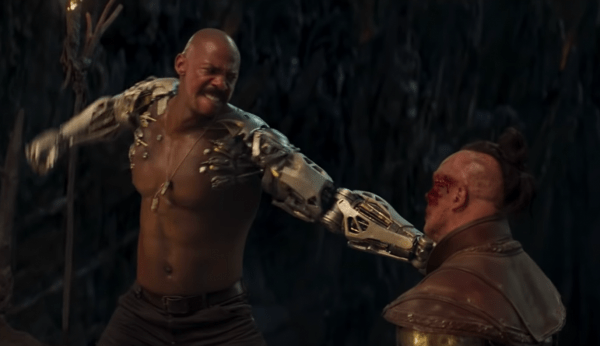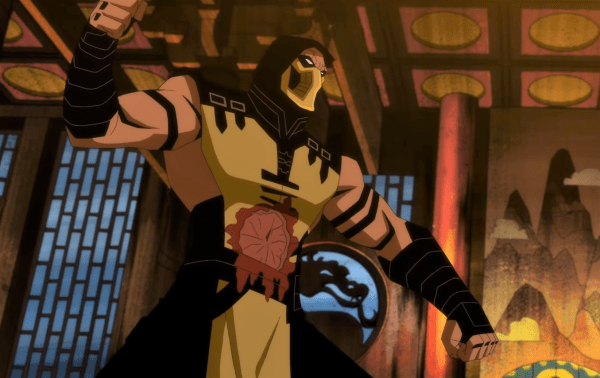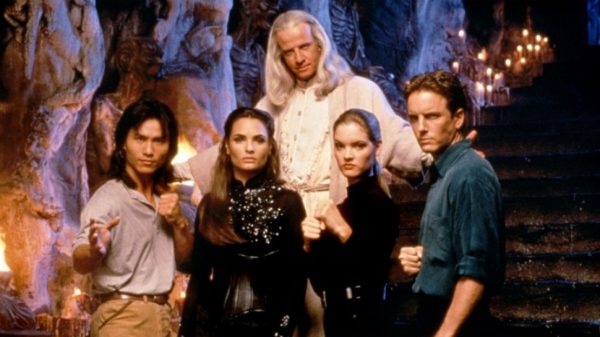Shaun Munro reviews every Mortal Kombat movie from worst to best…
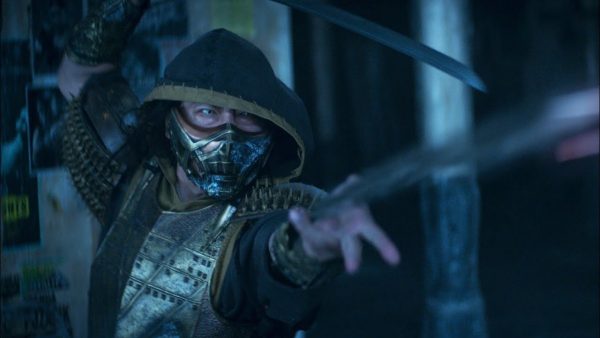
If the so-called “video game movie curse” has yet to be broken in earnest with a truly great movie adaptation, recent years have at least seen Hollywood making a more concerted effort to show these IP the respect they deserve.
The latest attempt to translate a hit video game to the cinematic medium is the long-gestating Mortal Kombat – a table-clearing reboot following two live-action predecessors released in 1995 and 1997, and a standalone animated film from last year.
While few would call any one of the four films great in any traditional filmmaking sense, there is something to be said that only a single one of them is an actual, active insult to the series (and we all know which one that is).
But having revisited the three prior films in anticipation of the new movie, how do they stack up? Does the 2021 film race to the front of the pack, or is it unable to match the charms of what came before? Let’s dig in.
4. Mortal Kombat: Annihilation
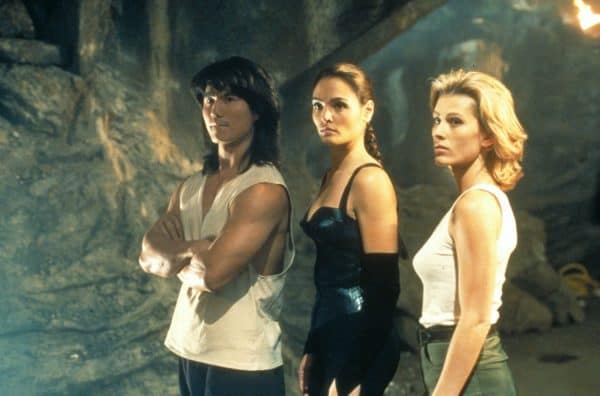
Tellingly, the best part of Mortal Kombat: Annihilation is an opening titles sequence more-or-less lifted from the first film, followed by a “previously on Mortal Kombat” montage comprised of clips from Paul W.S. Anderson’s predecessor you should probably just watch instead.
It’s all downhill from there for this 1997 sequel, which served as the directorial debut for the first film’s cinematographer, John R. Leonetti, who has since directed the risible likes of The Butterfly Effect 2, Annabelle, and Wish Upon.
Despite being budgeted at a princely $30 million – almost double the original’s $18 million – Annihilation feels less-than in every conceivable way, its cheap-looking costumes and bargain basement CGI suggesting a film which cut most every possible corner.
Tellingly, it’s been alleged in recent times that New Line Cinema more-or-less released a work-in-progress cut of the film to audiences, which would at least explain the embarrassing, shit-the-bed visual effects car crash during its climactic CGI monster fight between dragon-form Liu Kang (Robin Shou) and hydra-form Shao Kahn (Brian Thompson).
It does less to explain what truly sinks the movie, though, and that’s the prevailing lousiness of both the script and practical production. While a few of the previous film’s meritorious elements have carried over – namely the neat set lighting and gorgeous natural locations – they’re defenseless against choice quips like Sindel’s (Musetta Vander) infamous “Too bad you…will DIE!”
Few will profess to come to a Mortal Kombat movie for the writing, but there has to be something. Sadly the sumptuous allure of Anderson’s original has all-but-evaporated here, drowning the cast – some of whom are actually trying – amid a torrent of exposition, much of which was evidently piped in during post-production considering the abundance of out-of-sync dialogue.
Despite the success of the 1995 film, many fans were left disappointed by the personnel changes this time around; Johnny Cage (Chris Conrad) is recast and summarily killed off in the opening sequence, while James Remar’s Raiden is a woefully poor substitute for Christopher Lambert. Sandra Hess fares better as the new Sonya Blade, but it’s still a huge shame that Robin Shou’s Liu Kang is the only returning member of the primary trio.
To try and appease fans, Annihilation massively expands its roster of kombatants, even if most are senselessly hurled in with only the most vague logic or import. The likes of Nightwolf (Litefoot), Sheeva (Marjean Holden), Motaro (Deron McBee), Jade (Irina Pantaeva), Mileena (Dana Hee), Baraka (Dennis Keiffer), Rain (Tyrone Wiggins), and Smoke (Ridley Tsui) make fleeting appearances, though more often than not they’re killed off before they can actually do much of anything.
This efficient revolving door policy for the supporting cast speaks to an entire movie that feels like it was whittled mercilessly into its 95-minute final form by a studio-appointed mercenary. Beyond the blatant ADR, the film rushes fitfully from one tireless set-piece to another, the fights largely filmed without much in the way of cinematic flair.
Perhaps the only smart decision Leonetti makes is to stuff the back-half of the movie with wall-to-wall action, some of which is at least passably watchable, particularly the battle between Sub Zero (Keith Cooke) and Scorpion (J.J. Perry), and Sonya and Jax’s (Lynn Red Williams) tussle with Cyrax (also J.J. Perry).
This would certainly be far more of a chore to sit through were it not for the plentiful, power-your-brain-down action. Otherwise, there’s little in the way of chemistry between the new cast members – unaided by the main fighters being squared away into their own delineated subplots – while the weirdly dull baddie Shao Kahn is no match for Cary-Hiroyuki Tagawa’s delightfully unhinged Shang Tsung from the first film.
With almost 15 minutes of closing credits, it at least has the good sense to barely spend 80 minutes in front of your eyeballs before tapping out. But make no mistake, Mortal Kombat: Annihilation is doubly insulting; a shamelessly lazy sequel and embarrassingly low-effort video game adaptation.
Flickering Myth Rating – Film: ★ / Movie: ★ ★
3. Mortal Kombat (2021)
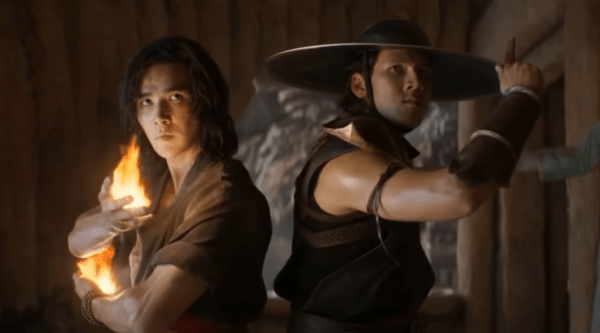
Mortal Kombat: Annihilation’s commercial failure caused the IP to be put on cinematic ice for close to a quarter-century. After a few failed attempts to get a reboot off the ground, the franchise is finally back on the big screen – or, for most audiences right now, small screen – with a $95 million budget and appealing cast to boot.
That said, there was understandable worry from many fans pre-release given the scant filmmaking plaudits of Simon McQuoid, an award-winning commercial director who makes his feature film debut here.
But fans can rest easy, for while Mortal Kombat 2021 is certainly flawed and very, very far from being our first truly great video game movie, it is also among the more lovingly crafted game adaptations to date. It is easily the most handsomely produced in terms of adhering to the IP’s dominant aesthetic; True Detective cinematographer Germain McMicking’s silky smooth lensing combines with surprisingly upmarket visual effects to ensure it shirks the chintzy aesthetics of its live-action predecessors.
Some may miss the shameless B-movie-ness of the previous live-action outings, though, which would certainly make this film’s avalanche of listless, expository chit-chat about “arcana” – the unique ability granted to every kombatant – a little easier to bear. But for the most part McQuoid and screenwriters Greg Russo and Dave Callaham strike a fair balance; the film takes its own mythos relatively seriously, though comedic ballast characters such as Aussie loudmouth Kano (a thoroughly entertaining Josh Lawson) keep things on an even tonal keel.
Yet there are other issues; centering the action around an audience surrogate protagonist, Cole Young (Lewis Tan), feels totally unnecessary, not to mention saddling him with the melodramatic baggage of a wife and daughter who, of course, end up imperiled. There’s also no Johnny Cage to be found and the titular tournament doesn’t actually take place in the movie, presumably being saved for a potential sequel.
Where Mortal Kombat stridently succeeds is in its action, which while deployed a little too sparingly throughout the film’s 110 minutes, is for the most part crafted with a keen visual eye and necessary deference towards outrageously over-the-top violence. The breakneck editing threatens to compromise the fisticuffs on occasion, though it crucially doesn’t upend the audience’s sense of direction – it’s more comparable to Mad Max: Fury Road than Taken 3, basically.
As the only R-rated live-action Mortal Kombat, the film certainly wears a weight of responsibility on its shoulders, and the goopy fatalities more than live up to what fans will expect; an hilariously gross death doled out by Kung Lao (Max Huang) is especially crowd-pleasing. Married to McQuoid’s smooth coverage and tight fight choreography – largely performed by a cast of actual martial artists, even – it certainly touts some of the more persuasive action from any video game movie to date.
Though the script doesn’t give most of the cast much to do, this is nevertheless an enticing ensemble; Joe Taslim is the easy MVP as the fantastically menacing Sub-Zero, presented here as a terrifyingly relentless, Terminator-esque assassin, while Josh Lawson’s Kano brings the ribald laughs, and the likes of Liu Kang (Ludi Lin), Raiden (Tadanobu Asano), Scorpion (Hiroyuki Sanada), Sonya Blade (Jessica McNamee), and Jax (Mehcad Brooks) all feel well-represented.
All this said, though, it doesn’t seem likely this iteration will become as iconic, cherished, or even definitive as Anderson’s original live-action film. Despite generally being a far more faithful and technically polished effort, its clean efficiency lacks the schlocky, warm appeal of the original.
Still, it’s clear that the cast and crew cared about delivering a movie worthy of the Mortal Kombat name, and above all else they’ve created a firm foundation for a promising franchise. Of course, there’s in-built sequel bait – universe bait, even – should it perform well enough in its theatrical-streaming hybrid release.
Though lacking the kitschy charms of the 1995 movie, this slick, ultra-bloody reboot should deliver enough stylish mayhem to satisfy fans of the series.
SEE ALSO: Read our Mortal Kombat review here
Flickering Myth Rating – Film: ★ ★ ★ / Movie: ★ ★ ★
2. Mortal Kombat Legends: Scorpion’s Revenge

Curiously, the first R-rated Mortal Kombat movie turned out to be an animation, as helmed by Avatar: The Last Airbender veteran Ethan Spaulding. With franchise creator Ed Boon onboard as a creative consultant, it makes sense that Mortal Kombat Legends: Scorpion’s Revenge touts the most inspired plot and structure of all four movies, melding a retelling of the original story with a vengeance-fuelled origin tale for Scorpion.
For the standards of Mortal Kombat movies, the storytelling here is practically ambitious – if not always totally coherent – and at least appears more acutely aware of its own nonsense than any of the three live-action films, while lending meaningful shade to its large roster of fighters.
Though the animation style isn’t particularly striking – bearing the workmanlike, budget-conscious style of most WB animated movies – Scorpion’s Revenge shines in the action department, pulling no punches straight from an opening sequence in which Scorpion’s son is brutally slaughtered, apparently by Sub Zero.
Viewers won’t need to wait more than a few minutes between nauseating fatalities, many of which are captured via the video game series’ now-signature slow-motion X-ray motif, allowing fans to linger on every bone-crunching detail of bodily destruction.
Once Scorpion’s quest for revenge is solidified, Spaulding smartly makes the grisly fights the focal point, and though the film’s visual identity isn’t particularly spectacular, the kombat itself is immensely satisfying – particularly Goro de-limbing a certain fighter and Scorpion decapitating three mooks at once with his spear.
The splashy action is supported by the strong efforts of a crowd-pleasing voice cast; numerous personnel reprise their roles from the video games, though the casting masterstroke is the brilliantly inspired decision to have Joel McHale play Johnny Cage. His well-honed brand of smarm is note-perfect for the egotistical martial artist movie star, and so good it’s tough to imagine anyone else playing the part.
Though not the best of all the Mortal Kombat films, it is certainly the most respectful of the lore and of fans, making an earnest attempt to tell a vaguely compelling story while doing right by its characters, delivering gonzo action, and even throwing in some well-placed fan service (“Toasty!,” Cage yells at one point).
Bloodier and more reverent to the source material than the prior live-action Mortal Kombat movies, Scorpion’s Revenge delivers fan-serving fun without reinventing the animated wheel.
SEE ALSO: Read our Mortal Kombat Legends: Scorpion’s Revenge review here
Flickering Myth Rating – Film: ★ ★ ★ / Movie: ★ ★ ★
1. Mortal Kombat (1995)
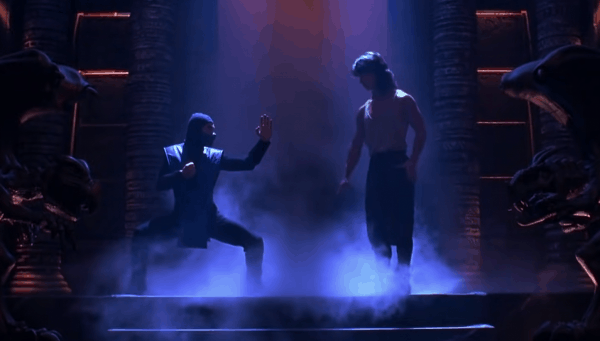
Though dripping ’90s from its every pore and being undeniably dated to that end, Paul W.S. Anderson’s original 1995 movie has a purity to it that’s incredibly difficult to replicate or, pardon the pun, kombat.
From its show-stopping opening titles sequence – which, let’s be honest, is more iconic than anything else in the movie – onwards, Mortal Kombat is a gloriously entertaining exercise in splashy, pulpy excess.
Anderson may have later earned infamy for his dubious adaptations of the Resident Evil games, but this remains one of the more faithful video game movies of its era, in a time where Hollywood generally wasn’t interested in attempting to translate the experience of gameplay to the big screen in any tangible way.
Now, to be completely fair, Mortal Kombat is undeniably hobbled by its PG-13 content rating – which certainly would’ve roused far more of a stink today – but accepting the lack of gory fatalities, its world feels alive in ways that most video game movies don’t even now. The sublime production design – primarily its gorgeously labyrinthine sets and fantastically moody lighting – combines with eye-popping natural Thai locations and matte painting set extensions to well and truly transport the audience to another realm.
It is a film that oozes atmosphere from every pore of its meticulously crafted world, and even when the more ambitious effects work fails – particularly the aged-like-milk CGI Reptile – it evokes more of a knowing smirk than a groan. Hell, even the janky Goro animatronic is fun to watch.
Tonally, Anderson finds a delicate sweet spot wherein it doesn’t take itself too seriously but also doesn’t regard itself as a complete joke. Yes, the dialogue is ridiculous – “To win your next match, use the element which brings life” – but the cast is knowing enough to chew through it with a wink-wink enthusiasm.
Particularly excellent are Christopher Lambert’s cackling Lord Raiden, Trevor Goddard’s boorish Kano, and Cary-Hiroyuki Tagawa’s immortal Shang Tsung – the latter two performances so beloved they basically became the defaults for their respective characters. As Liu Kang, Johnny Cage, and Sonya Blade respectively, Robin Shou, Linden Ashby, and Bridgette Wilson soar on the strengths of their red-blooded chemistry – an attribute somewhat lacking from every other live-action Mortal Kombat movie.
Time hasn’t been kind to every facet of Anderson’s Mortal Kombat, but its well-crafted atmospherics, heightened action, and enthusiastic cast ensure it remains one of the more spirited video game adaptations to date.
SEE ALSO: Looking Back At The Mortal Kombat Movie 25 Years On
Flickering Myth Rating – Film: ★ ★ ★ / Movie: ★ ★ ★ ★
Shaun Munro – Follow me on Twitter for more film rambling.
